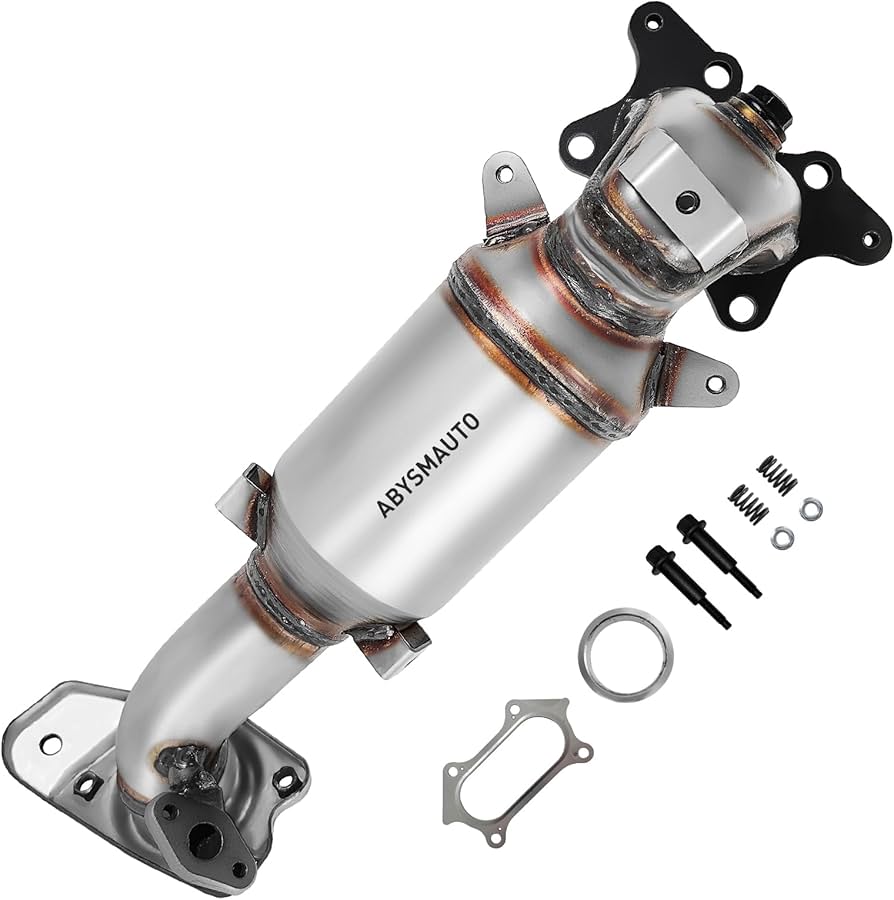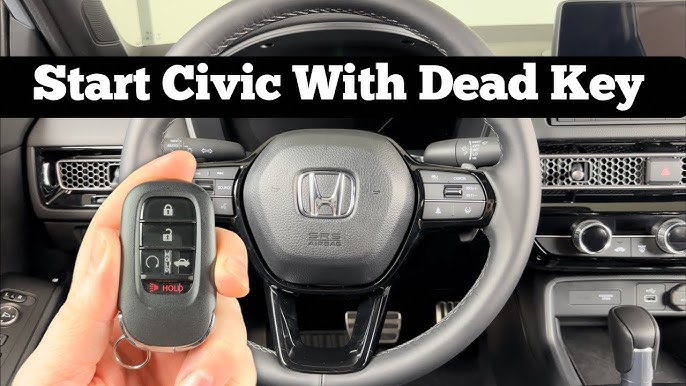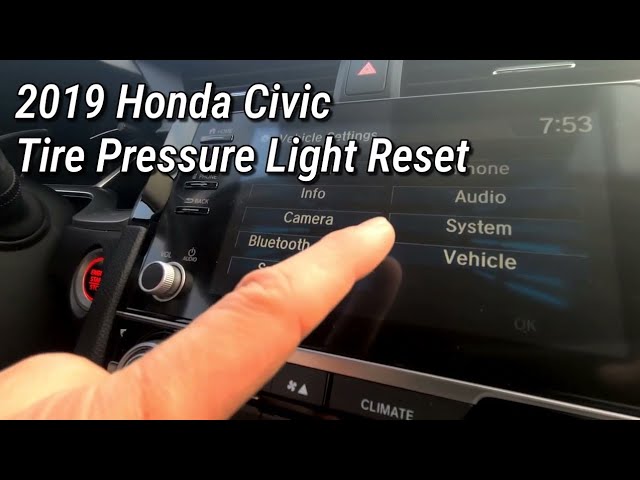As an Amazon Associate, I earn from qualifying purchases
Have you ever wondered if your Honda Civic really has a catalytic converter? This small but powerful part plays a big role in keeping your car’s emissions low and your environment cleaner.
Understanding whether your Civic has one can save you money, help with repairs, and even keep you out of trouble with the law. Keep reading to discover the truth about Honda Civics and catalytic converters—and why it matters to you.
Catalytic Converters In Honda Civics
Honda Civics are popular cars known for reliability and efficiency. One key part in these cars is the catalytic converter. This device helps reduce harmful gases from the engine. Many people ask if Honda Civics really have catalytic converters. The answer is yes. Almost all modern Honda Civics come equipped with catalytic converters. These parts play an important role in keeping the air clean and meeting emission laws.
Function Of Catalytic Converters
Catalytic converters reduce harmful gases from the car’s exhaust. They change dangerous gases into less harmful ones. For example, they convert carbon monoxide into carbon dioxide. They also reduce nitrogen oxides and hydrocarbons. This helps reduce air pollution and protect the environment. Catalytic converters work by using catalysts like platinum and palladium. These metals speed up chemical reactions without being used up. The device is part of the exhaust system and works every time the engine runs.
Presence In Different Civic Models
Most Honda Civics from the 1990s to today have catalytic converters. Older models before the 1980s may not have them. Gasoline-powered Civics always come with catalytic converters. Hybrid Civics also include these parts. Some high-performance or special models might have more advanced versions. The size and shape of the converter can vary by model. But the main function remains the same. The presence of catalytic converters helps Honda Civics meet strict emission rules worldwide.
Materials And Design
The materials and design of catalytic converters in Honda Civics play a key role in reducing harmful emissions. These components help turn toxic gases into less harmful ones before they leave the exhaust system. Understanding the materials used and design changes helps explain their effectiveness and durability.
Common Materials Used
Catalytic converters use a mix of metals inside a ceramic or metallic honeycomb structure. Precious metals like platinum, palladium, and rhodium act as catalysts. These metals speed up chemical reactions without being used up. The honeycomb shape gives a large surface area for gases to pass through. This design allows more contact between harmful gases and the catalyst metals.
Design Variations By Year
Honda has changed catalytic converter designs over the years to meet stricter emission rules. Older Civics often used simpler ceramic substrates. Newer models may include metallic substrates for better heat resistance. The size and shape of converters also vary by engine type and model year. These design updates improve efficiency and lifespan. Each generation reflects advances in technology and environmental standards.
Signs Of A Failing Catalytic Converter
The catalytic converter is a key part of your Honda Civic’s exhaust system. It helps reduce harmful gases from the engine. Signs of a failing catalytic converter can affect your car’s performance and emissions. Recognizing these signs early can save you from costly repairs. Below are common symptoms to watch for.
Performance Symptoms
A failing catalytic converter can cause your car to lose power. You might notice slow acceleration or trouble climbing hills. The engine may run rough or stall unexpectedly. Strange noises like rattling under the car can also happen. These noises come from broken internal parts inside the converter.
Emission Test Results
One clear sign is failing an emission test. The catalytic converter cleans exhaust gases. If it fails, your car will release more pollutants. Emission tests will show high levels of harmful gases like carbon monoxide. This means the converter is not working properly and needs attention.

Credit: invidia-exhausts.com.au
Replacement And Maintenance
Maintaining and replacing the catalytic converter in a Honda Civic is important for the car’s performance and emissions. Over time, the catalytic converter can wear out or get damaged. Knowing when to replace it and how to do so helps keep the vehicle running smoothly. Proper care also prevents costly repairs later.
When To Replace
Signs of a bad catalytic converter include poor engine performance and unusual smells. The engine might stall or fail emissions tests. A check engine light often turns on when the converter is failing. Strange noises like rattling can also point to damage. Replace the converter if these symptoms persist.
Cost Considerations
Replacing a catalytic converter on a Honda Civic can cost between $500 and $1,500. Prices depend on the model year and part quality. Labor costs vary by location and mechanic. Choosing a used or aftermarket part can lower the price. Budget for both parts and professional installation.
Diy Vs Professional Service
Replacing a catalytic converter yourself is possible but challenging. The part is heavy and located under the car, which can be hard to reach. Special tools and safety gear are needed. Professionals have the right tools and experience. They ensure the job is done safely and correctly. For most owners, professional service is the safer choice.
Catalytic Converter Theft Issues
Catalytic converter theft is a growing problem for many car owners. Honda Civics are often targets for thieves. These parts contain valuable metals. Thieves steal them to sell for cash. The loss causes expensive repairs for owners. Understanding why Civics are targeted helps protect your car.
Why Civics Are Targeted
Honda Civics have catalytic converters that hold precious metals. These metals include platinum, palladium, and rhodium. Thieves want these metals because they sell for high prices. Civics sit low to the ground. This makes it easier for thieves to reach under the car. The high number of Civics on the road also means more targets. Parts from Civics are in demand, increasing theft risks.
Prevention Tips
Park in well-lit areas to reduce theft chances. Use a garage if possible. Installing a car alarm can scare off thieves. Consider a protective shield for your catalytic converter. Mark your converter with your car’s VIN number. This helps police identify stolen parts. Report suspicious activity near your vehicle. Quick action can prevent theft or catch thieves.

Credit: www.amazon.com
Environmental Impact
Honda Civics have catalytic converters to reduce harmful gases. These devices help clean the air and protect the environment. Understanding their impact is important for drivers and communities.
Emission Reduction Benefits
Catalytic converters lower dangerous gases from car exhaust. They change carbon monoxide, nitrogen oxides, and hydrocarbons into less harmful substances. This process reduces air pollution around cities and roads. Cleaner air means better health for people and animals. Honda Civics with converters help reduce smog and acid rain problems.
Legal Regulations
Governments require cars to have catalytic converters. These rules aim to cut down air pollution and protect public health. Honda Civics meet these laws by using efficient converters. Cars without them may face fines or fail inspections. Following these laws helps keep the air safe and clean for everyone.

Credit: www.ebay.com
Frequently Asked Questions
Do Honda Civics Come With Catalytic Converters?
Yes, all Honda Civics have catalytic converters to reduce harmful emissions from the engine.
Why Do Honda Civics Need Catalytic Converters?
Catalytic converters help clean exhaust gases, making Civics meet environmental laws and reduce pollution.
How Long Does A Catalytic Converter Last In A Honda Civic?
A catalytic converter usually lasts over 70,000 miles but can fail sooner if damaged or clogged.
Can A Honda Civic Run Without A Catalytic Converter?
Technically yes, but running without one is illegal and causes more pollution and engine problems.
What Are Signs Of A Bad Catalytic Converter In A Civic?
Poor engine performance, strange smells, and the check engine light often indicate catalytic converter issues.
How Much Does It Cost To Replace A Honda Civic Catalytic Converter?
Replacement costs vary but typically range between $500 and $1,200, including parts and labor.
Conclusion
Honda Civics do have catalytic converters to reduce pollution. These parts help clean harmful gases from the engine. They keep the air cleaner and meet legal rules. Without them, cars would release bad smoke. Checking the catalytic converter regularly saves money and avoids trouble.
It also helps the car run better and last longer. So, yes, catalytic converters are important parts of Honda Civics. They play a big role in protecting the environment and your car’s health.
As an Amazon Associate, I earn from qualifying purchases


